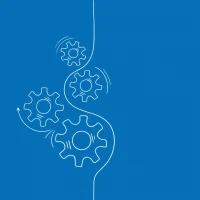000
100
%
Joint research unit
Présentation
The Rhône-Alpes historical research laboratory) (UMR 5190) is a CNRS Joint Research Unit, under the auspices of the Universities of Lumière-Lyon 2, Jean Moulin-Lyon 3, Grenoble-Alpes and the ENS de Lyon.
LARHRA specializes in history and art history, covering the modern and contemporary periods. From early modernity to the present day, LARHRA’s expertise covers a wide range of geographic and thematic areas, from Latin America to the Maghreb and the Near East, via France and Western Europe in the broadest sense; from corporate history to the Inquisition, from urban mobility to gender studies, from architecture to the decorative arts, from medical knowledge to technical education, from territory and the environment to religious syncretisms, from memorial and heritage constructions to contemporary media, and so on.
It is made up of CNRS researchers, teacher-researchers, emeritus teacher-researchers, engineers, technicians and administrative staff, post-docs and research fellows, PhD students and associates.

LARHRA organization chart
The LARHRA on the international scene
The international reach of the unit (about 35 countries) is expressed at several levels:
- Institutional research programs: ERC, ANR, etc.
- Research programs of the members: on Mexican, African, Asian, European areas, etc.; stays or delegations to French research institutions in Europe or outside Europe
- International networks: international associations for historical research, digital humanities, etc.
- Hosting of foreign researchers and doctoral students.
Drag pour explorer la carte
Recommendations from the LARHRA
The LARHRA has been committed for many years to the promotion of women’s and gender history themes and to the implementation of good practices in terms of parity within it. The composition of its management and council are a reflection of this. In a context where the public debate is focusing on parity in all scientific fields, including our disciplines following the opinion piece published in Le Monde on October 3, 2018, at the initiative of the collective “Faiseuses d’histoire”, the LARHRA wishes to clarify its commitment to parity in scientific practice. In this context, it proposes a few recommendations:
1.
2.
3.
4.
5.